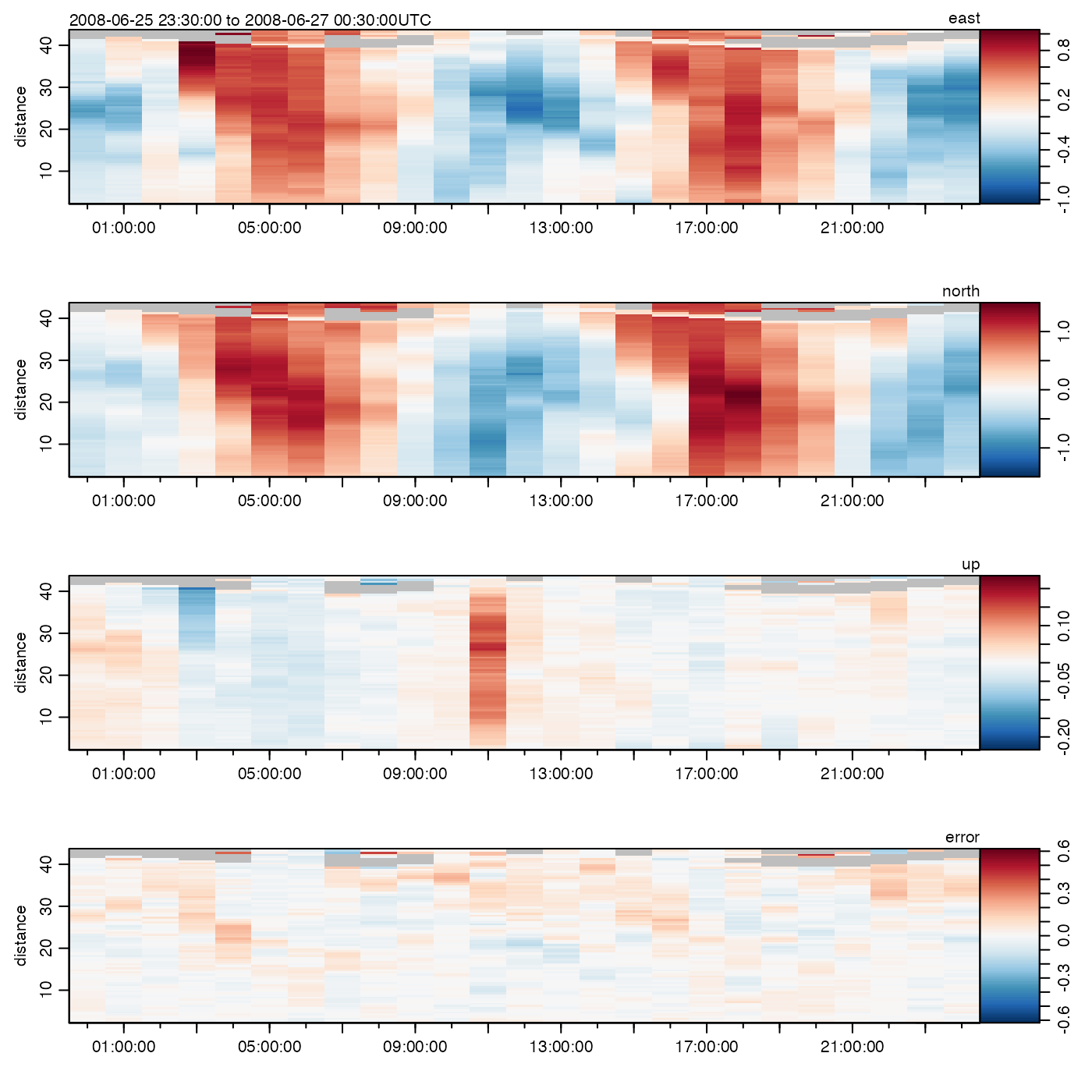Later on, other methods will be added, and ctdDecimate() will be
retired in favour of this, a more general, function. The filtering is done
with the filter() function of the stats package.
Usage
decimate(x, by = 10, to, filter, debug = getOption("oceDebug"))Arguments
- x
an oce object.
- by
an indication of the subsampling. If this is a single number, then it indicates the spacing between elements of
xthat are selected. If it is two numbers (a condition only applicable ifxis anechosounderobject, at present), then the first number indicates the time spacing and the second indicates the depth spacing.- to
Indices at which to subsample. If given, this over-rides
by.- filter
optional list of numbers representing a digital filter to be applied to each variable in the
dataslot ofx, before decimation is done. If not supplied, then the decimation is done strictly by sub-sampling.- debug
a flag that turns on debugging. Set to 1 to get a moderate amount of debugging information, or to 2 to get more.
Value
An oce object that has been subsampled appropriately.
Bugs
Only a preliminary version of this function is provided in
the present package. It only works for objects of class echosounder,
for which the decimation is done after applying a running median filter and
then a boxcar filter, each of length equal to the corresponding component of
by.
See also
Filter coefficients may be calculated using
makeFilter(). (Note that ctdDecimate() will be
retired when the present function gains equivalent functionality.)
